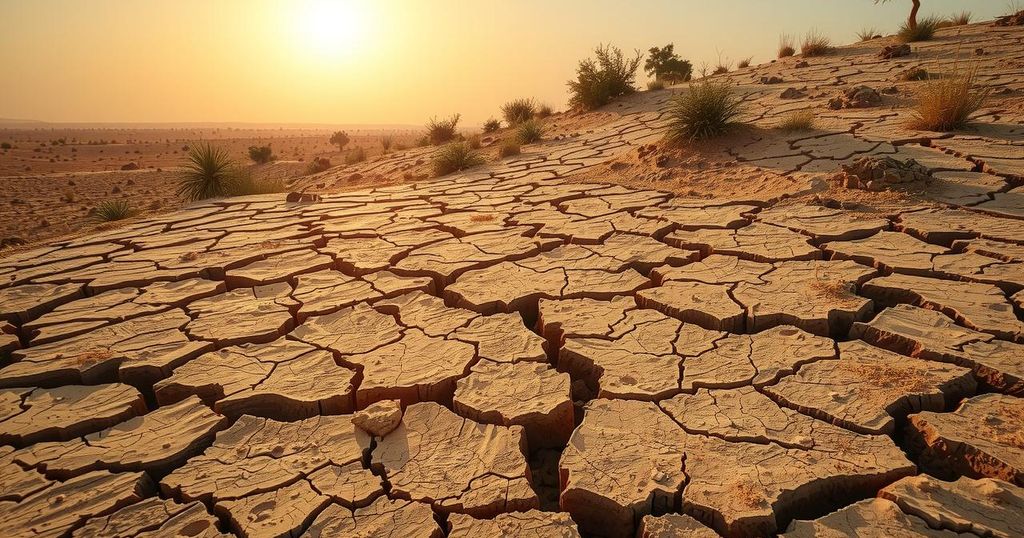Heavy rains in Morocco have temporarily increased dam levels from 26% to 35% after seven years of drought, yet the situation remains critical. Experts, including Mohammed-Said Karrouk and Abdelhakim El Filali, emphasize that the rainfall does not resolve underlying water management issues and call for sustainable practices and long-term strategies to address the structural challenges of water scarcity in the country.
Recent heavy rains in Morocco, which followed seven years of drought, have resulted in increased dam levels from 26% last year to approximately 35% presently. While this development brings short-term relief, it starkly contrasts with the 68% dam filling rate recorded in 2018. The northern regions have primarily benefitted from this rainfall, while central and southern areas continue to face significant water scarcity challenges despite some precipitation.
Experts have cautioned against complacency, highlighting that Morocco’s water crisis demands more than just immediate rainfall relief. Mohammed-Said Karrouk, a climatology professor, emphasized that drought is entrenched in Morocco’s climate history, with its implications evident throughout the nation’s development. He criticized governmental approaches to water management, voicing concerns that current solutions do not address deeper structural issues that underlie Morocco’s water challenges.
Karrouk pointed out that while technical advancements in water management have been made, failures in governance and social responsibility persist. He noted the paradox wherein rainfall has primarily replenished dams in less affected regions while the central and southern areas suffered from water table depletion, indicating a complex crisis that extends beyond mere lack of rainfall.
Abdelhakim El Filali, a professor and water expert, echoed Karrouk’s sentiments, noting that Morocco’s water crisis is compounded by rising water demand in agriculture and industry. He warned against the risk of forgetting the impacts of prolonged drought due to short-term rainfall, underlining that sustainable management is key to addressing Morocco’s challenges. Historical patterns show alternating periods of drought and rainfall, necessitating a focus on sustainable use rather than viewing water as an abundant resource.
El Filali called for the implementation of urgent measures including water conservation, policy reviews, and rigorous enforcement of water consumption regulations. He expressed concern over the lack of compliance with existing water laws and criticized delays in essential infrastructure projects, advocating for responsible governance in water and agricultural policies to mitigate future crises.
Ultimately, both experts call for an acknowledgment of Morocco’s climatic realities, reinforcing the importance of sustainable practices in water management and emphasizing accountability in policy implementation.
In summary, while recent rainfall in Morocco provides immediate relief, it does not signify the end of the country’s ongoing water crisis. Experts argue that historical and structural factors underpin Morocco’s challenges, emphasizing the need for comprehensive management strategies and sustainable practices. It is crucial for policymakers to focus on long-term solutions while re-evaluating water usage and implementing previously outlined infrastructure projects to ensure future water security.
Original Source: www.moroccoworldnews.com






